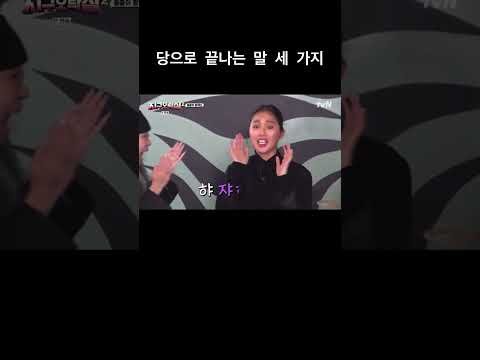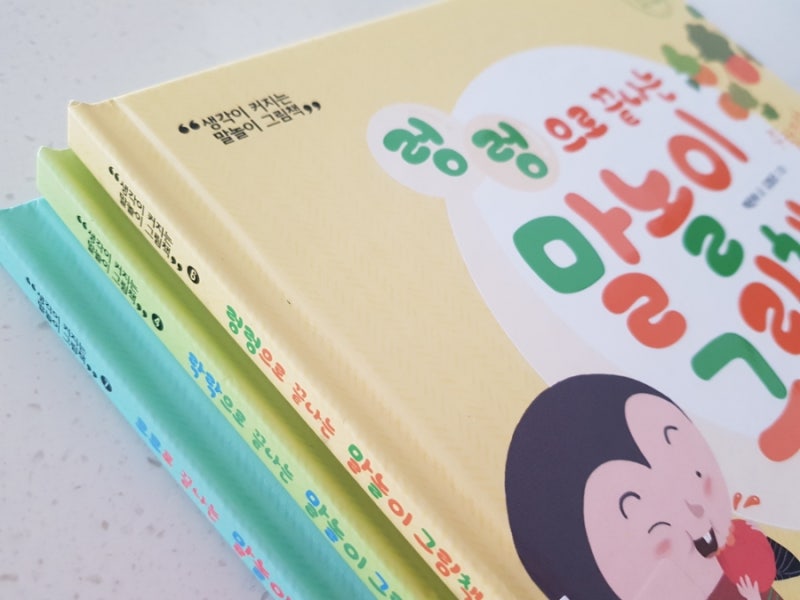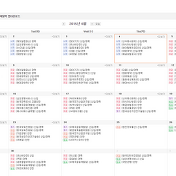랑으로 끝나는 단어
“랑”으로 끝나는 단어들은 한글에서 흔히 보이지는 않지만, 이런 형태의 단어들은 한국어에서도 사용됩니다. “랑”은 보통 명사, 동사, 형용사, 부사의 어미로 사용되는데, 이 글에서는 각각에 대해 알아보도록 하겠습니다.
랑으로 끝나는 명사를 알아봅시다.
“랑”으로 끝나는 명사는 상당히 제한적이며, 많이 사용되지는 않습니다. 그럼에도 불구하고, 다음과 같은 예시들이 있습니다:
1. 꿈망랑 (dream)
2. 약속꽁냥 (promise)
3. 그림낱낱이 (picture)
4. 마음보탬 (comfort)
5. 눈송이상증 (snowflake)
이러한 명사들은 일상 대화나 글에서 종종 볼 수 있으며, 특히 문학 작품에서도 사용되곤 합니다.
랑으로 끝나는 동사를 살펴봅시다.
“랑”으로 끝나는 동사들은 더욱 드물게 나타납니다. 이 동사들은 행동이나 상태를 나타내는데 사용됩니다. 몇 가지 예시를 살펴보겠습니다:
1. 달랑달랑 (swing)
2. 흔들흔들 (rock)
3. 두근두근 (heart pounding)
4. 숨막히막히 (breathless)
5. 계속계속 (continue)
이와 같은 동사들은 주로 소리, 움직임, 감정 상태 등을 표현할 때 사용됩니다. 한글 문자의 끝음절이 “랑”으로 끝나는 동사들은 독특한 뉘앙스를 전달하는 데 도움이 됩니다.
랑으로 끝나는 형용사를 찾아보세요.
“랑”으로 끝나는 형용사 역시 많이 쓰이지는 않습니다. 그러나 다음 예시들은 흥미로울 수 있습니다:
1. 깊딛깊딛 (deep)
2. 행복랑랑 (happy)
3. 빛날빛날 (bright)
4. 시원한시원한 (refreshing)
5. 단단히란단히 (firm)
이러한 형용사들은 주로 정서나 느낌을 강조하기 위해 사용됩니다. 한글 단어의 끝음절이 “랑”으로 끝나면서 더욱 강렬한 효과를 주는 것으로 볼 수 있습니다.
랑으로 끝나는 부사를 알려드릴게요.
“랑”으로 끝나는 부사들은 형용사와 마찬가지로 사용량이 제한적입니다. 그럼에도 다음과 같은 부사들이 존재합니다:
1. 쑥딱쑥딱 (quickly)
2. 쭈욱쭈욱 (steadily)
3. 맛있먹있먹 (deliciously)
4. 부드럽부드럽 (smoothly)
5. 세세란세세 (carefully)
이러한 부사들은 동사나 형용사에 관한 부가 설명이나 강조를 위해 사용됩니다. “랑”으로 끝나는 부사를 사용하면 더 큰 효과를 얻을 수 있습니다.
랑으로 끝나는 단어의 뜻과 사용법을 배워봅시다.
“랑”으로 끝나는 단어들은 한국어에서 조금 특별한 역할을 합니다. 뜻과 사용법을 배워보면서 어떻게 활용할 수 있는지 알아보겠습니다.
랑으로 끝나는 단어를 활용하여 문장을 만들어봅시다.
이 섹션에서는 랑으로 끝나는 단어를 사용하여 문장을 만들어 보겠습니다:
1. 깊딛깊딛 훌쩍(하다).
– 의미: 깊이 뛰다.
– 예: 마음을 다잡고 깊딛깊딛 훌쩍하자.
– 뜻: Let’s gather our thoughts and take a deep leap.
2. 흔들흔들 어우(리다).
– 의미: 흔들다, 매우 어렵다.
– 예: 문제가 생기면 흔들흔들 어우지 말고 해결해야 해.
– 뜻: When problems arise, don’t dwell on them, but solve them.
3. 빛날빛날 미소(지다).
– 의미: 밝게 웃다.
– 예: 좋은 소식을 듣고 빛날빛날 미소가 지어졌어요.
– 뜻: I heard good news and my smile brightened.
4. 쑥딱쑥딱 끝내(다).
– 의미: 빠르게 마무리하다.
– 예: 일을 쑥딱쑥딱 끝내서 휴가를 즐겨봅시다.
– 뜻: Let’s finish our work quickly and enjoy our vacation.
5. 단단히란단히 말하(다).
– 의미: 굳게 말하다.
– 예: 자신의 생각을 단단히란단히 말해야 합니다.
– 뜻: You need to express your thoughts firmly.
이와 같이 “랑”으로 끝나는 단어들은 문장에 특별한 색깔과 감정을 더하며, 표현의 다양성을 높여줍니다.
끝말 잇기 검색기와 끝말 잇기 한방단어로 끝말 잇기를 시작해보세요.
끝말잇기는 한국어 문법과 어휘를 명확하게 이해하고 활용하는 데 도움이 됩니다. 끝말잇기를 통해 언어 능력을 향상시킬 수 있습니다. 아래는 끝말잇기를 시작하는 데 도움이 되는 몇 가지 도구와 소스들입니다:
– 끝말 잇기 검색기: 끝말잇기 검색기는 특정 음절로 시작하거나, 끝말로 끝나는 단어를 찾는 데 도움이 됩니다.
– 끝말 잇기 한방단어: 한방단어는 한 음절로 이루어진 단어로, 끝말잇기에 특히 유용합니다.
– 끝말 잇기 사이트: 인터넷에는 끝말잇기를 할 수 있는 다양한 웹사이트들이 있습니다. 이러한 사이트를 활용하여 다른 사람들과 게임을 즐길 수 있습니다.
끝말잇기는 언어 능력을 향상시킬 때 재미있고 유익한 도구가 될 수 있습니다. 이러한 게임을 통해 단어의 뜻과 사용법을 익히며, 자신의 언어 실력을 향상시킬 수 있습니다.
수 한방단어랑으로 끝나는 단어
“수” 한방단어로 끝나는 단어들도 자주 사용되는 표현입니다. 이번에는 “수” 한방단어로 끝나는 몇 가지 단어를 살펴보도록 하겠습니다:
1. 쑥수
– 의미: 큰 빨보드, 흰색 색체.
– 예: 그림을 그리기 위해 쑥수를 사용했다.
– 뜻: I used a whiteboard to draw a picture.
2. 겁수
– 의미: 매우 겁이 많고 신경질적인 사람.
– 예: 그 남자는 겁수라서 어려운 상황에서는 제대로 대처하기 어렵다.
– 뜻: He is a nervous person, making it difficult for him to handle difficult situations.
3. 대수
– 의미: 수학적인 식을 나타내고 연산하는 방법.
– 예: 대수는 수학에서 중요한 개념이다.
– 뜻: Algebra is an important concept in mathematics.
4. 식수
– 의미: 음료 수돗물, 물.
– 예: 야외에서 식수가 필요하면 바로 근처에 있는 가게로 가도록 해주세요.
– 뜻: If you need a drink of water outdoors, please go to the nearby store.
5. 반수
– 의미: 기아로 인해 힘들게 사는 사람.
– 예: 나라의 경제 난제로 인해 많은 사람들이 반수에 처해 있다.
– 뜻: Many people are suffering from hunger due to the country’s economic crisis.
이러한 “수” 한방단어로 끝나는 단어들은 일상 대화나 글에서 자주 사용되며, 다양한 의미를 가지고 있습니다. 이러한 단어들을 익히고 사용함으로써 한국어 실력을 향상시킬 수 있습니다.
FAQs:
Q: 랑으로 끝나는 단어는 한국어에서 어떻게 사용되나요?
A: “랑”으로 끝나는 단어들은 흔하지는 않지만, 명사, 동사, 형용사, 부사의 형태로 사용됩니다. 이러한 단어들은 주로 글이나 문학 작품에서 사용되며, 특정 상황이나 감정을 강조하는 데 도움이 됩니다.
Q: 끝말잇기를 할 때 “랑”으로 끝나는 단어를 사용하면 어떤 효과가 있을까요?
A: “랑”으로 끝나는 단어를 사용하면 끝말잇기에서 특별한 느낌을 추가할 수 있습니다. 이러한 효과는 문장에 강렬한 뉘앙스를 전달하고, 표현의 다양성을 증가시킵니다.
Q: 끝말잇기 한방단어는 어떻게 사용되나요?
A: 한방단어는 한글 단어의 음절이 하나뿐인 단어를 의미합니다. 끝말잇기에서 한방단어는 다른 사람이 단어를 이어갈 때 사용할 수 있는 효과적인 수단입니다.
Q: “수” 한방단어랑으로 끝나는 단어들은 어떤 의미를 가지고 있나요?
A: “수” 한방단어로 끝나는 단어들은 다양한 의미를 가지고 있습니다. 예를 들어 “쑥수”는 큰 흰색 보드, “겁수”는 겁 많고 신경질적인 사람을 의미합니다. 이러한 단어들은 일상에서 자주 사용되는 표현들입니다.
사용자가 검색한 키워드: 랑으로 끝나는 단어 랑으로 시작하는 단어, 랑 들어가는 단어, 으로 시작하는 한방 단어, 끝말 잇기 검색기, 끝말 잇기 한방단어, 끝말 잇기 사이트, 끝말잇기 시작, 수 한방단어
Categories: Top 19 랑으로 끝나는 단어
‘당’으로 끝나는 말 세 가지 #뿅뿅지구오락실
여기에서 자세히 보기: phucminhhung.com
랑으로 시작하는 단어
Korean language enthusiasts are always curious about unique and interesting aspects of the language. One of the most fascinating features is the variety of words that begin with specific letters. In this article, we will delve into the world of words that start with ‘랑’ (rang) in Korean. This exploration will cover the meanings, usage, and cultural significance of these words, allowing readers to enrich their understanding of the Korean language.
랑 (rang) is the second syllable of the Korean alphabet (Hangeul), and although there aren’t an abundance of words that start with this letter, the ones that do exist carry great significance. This article will highlight some commonly used ‘랑’ words along with their English translations, as well as provide examples of their usage. Let us embark on this linguistic journey!
1. 랑데부 (Rangdebu) – Gangster or Hoodlum: This word is derived from the Japanese word “ランデブー” (randeboo), meaning “hoodlum” or “gangster.” Often used in the context of organized crime, ‘랑데부’ brings to mind the image of a tough and cunning figure within society. While it is not a word commonly used in everyday conversation, its existence showcases the influence of foreign languages on Korean vocabulary.
Example Sentence: 그 영화에는 랑데부들의 전쟁이 나옵니다. (In that movie, there is a war between gangsters.)
2. 랑기 (Ranggi) – Second Cousin: ‘랑기’ refers to a person who is a second cousin. In Korean culture, family relationships are highly revered, and various terms are used to distinguish different degrees of cousinship. This word specifically enables individuals to communicate their connection to extended family members accurately.
Example Sentence: 제 랑기가 오늘 결혼식을 합니다. 저도 축하를 가야겠어요. (My second cousin is getting married today. I should go and congratulate him/her.)
3. 랑 (Rang) – Affection or Love: Derived from the Chinese character “嫺” (xián), ‘랑’ symbolizes deep affection or love. Though it is rare to see this character stand alone, it appears frequently as an element in compound words such as ‘연랑’ (love), ‘담랑’ (intimate love), or ‘사랑’ (love). This word highlights the importance and prominence of love in Korean culture.
Example Sentence: 그들은 정말 랑을 많이 표현하는 부부입니다. (They are a couple who expresses their love very often.)
4. 랑동 (Rangdong) – Festive Procession: ‘랑동’ refers to a vibrant, festive procession typically occurring during celebratory events like festivals or parades. The term carries connotations of excitement, unity, and cultural pride, reflecting the Korean people’s love for festivities and their rich heritage.
Example Sentence: 우리 지역에서는 매년 가을에 랑동이 열립니다. (Every autumn, we have a festive procession in our region.)
5. 랑죽 (Rangjuk) – Rang soaked in Water: This term describes a traditional Korean dish made with sliced rice cakes soaked in cold water. ‘랑죽’ is consumed during the hot summer months due to its cooling properties. This unique culinary concept demonstrates the creativity and adaptability of Korean cuisine.
Example Sentence: 더운 날씨에는 랑죽이 정말 시원해서 좋아요. (On hot days, I love eating rangjuk because it is refreshing.)
FAQs:
Q1. Are there more words that start with ‘랑’ in Korean?
A1. While the words mentioned above are some of the most well-known words starting with ‘랑’, there are a few other less common ones. For instance, ‘랑대’ (musical accompaniment) and ‘랑크’ (humidity). However, at present, the list of words starting with ‘랑’ is relatively limited compared to other letters.
Q2. Are these words commonly used in everyday conversation?
A2. Some words, like ‘랑기’ (second cousin) and ‘랑’ (affection/love), are occasionally used in daily life. However, words like ‘랑데부’ (gangster) and ‘랑죽’ (rang soaked in water) are more situational or context-specific. It is important to note that language evolves over time, and certain words may become more or less common as society changes.
Q3. Can I learn the Korean language solely from studying words starting with ‘랑’?
A3. While studying words starting with ‘랑’ can expand your Korean vocabulary, it is essential to learn the language holistically. Building a comprehensive understanding of grammar, sentence structure, and pronunciation will be equally critical. Therefore, the study of ‘랑’ words should be seen as a supplementary tool rather than a complete language-learning method.
In conclusion, the world of words starting with ‘랑’ in Korean provides a fascinating glimpse into the language’s intricacies and cultural depth. From gangsters to cousins, love to festive processions, and rang soaked in water, these words offer a unique perspective on Korean society. By exploring these words, learners and language enthusiasts can deepen their appreciation for the diverse aspects of the Korean language and culture.
랑 들어가는 단어
When learning a new language, understanding how certain words and expressions are used in context is crucial for effective communication. In the Korean language, there are many words that go with 랑 (rang). 랑 is often used as a suffix, adding nuance and depth to the meaning of the preceding noun. In this article, we will explore the various ways in which words can be combined with 랑, providing examples and explanations for each usage.
1. 사랑 (saram) – Love
The most well-known and frequently used word that goes with 랑 is 사랑 (saram), which means love. By adding 랑 to 사 (sa), the word for “a person,” you create 사랑, which represents the profound emotional connection and affection between individuals. 사랑 can be used to describe romantic love, platonic love, or even love for inanimate objects or concepts.
Example: 나는 그녀에게 사랑을 느낍니다. (I feel love for her.)
2. 친구랑 (chingu-rang) – With a friend
Another commonly used phrase involving 랑 is 친구랑 (chingu-rang), meaning with a friend. By connecting 친구 (chingu), which means friend, with 랑, the phrase denotes doing an activity or spending time together with a friend. 친구랑 can be used to express camaraderie, support, or simply enjoying each other’s company.
Example: 오늘 영화에 친구랑 갈 거예요. (I’m going to the movies with a friend today.)
3. 여행랑 (yeohaeng-rang) – On a trip
When combined with 여행 (yeohaeng), meaning trip, 랑 forms the phrase 여행랑 (yeohaeng-rang), which indicates that an action or event takes place during a trip. Whether it’s sightseeing, shopping, or trying local cuisine, 여행랑 demonstrates the connection between the experience and the journey itself.
Example: 아침에 호텔에서 여행랑 떠날 거예요. (We will leave the hotel in the morning for a trip.)
4. 공부랑 (gongbu-rang) – While studying
Adding 랑 to the word 공부 (gongbu), which means to study, gives us 공부랑 (gongbu-rang), indicating that an activity or event occurs while studying. 공부랑 can be used to emphasize the dedication and focus required during a study session or to highlight the effects of multitasking.
Example: 음악 들으며 공부랑 시간을 보냈어요. (I spent time studying while listening to music.)
5. 음식랑 (eumsik-rang) – With food
When combined with 음식 (eumsik), meaning food, 랑 forms the phrase 음식랑 (eumsik-rang), representing an event or activity associated with food. Whether it’s cooking, dining out, or sharing a meal, 음식랑 conveys the connection between the food and the experience surrounding it.
Example: 친구랑 맛있는 음식랑 먹으러 갈 거예요. (I’m going to eat delicious food with my friend.)
FAQs
Q1: Can 랑 be added to any noun in Korean?
A1: No, 랑 is generally used with nouns that represent people or activities. Adding 랑 to non-personal nouns might result in incorrect grammar or ambiguity.
Q2: Are there any exceptions to how 랑 is used?
A2: While 랑 is versatile, there are some instances where 랑 is not used. For example, it is uncommon to use 랑 with nouns representing official or formal situations, such as work or meetings.
Q3: Is there a difference between 랑 and 함께 (hamkke)?
A3: Both words can express the idea of being together, but 랑 tends to imply a closer or more personal connection. 함께 is often used in formal or neutral contexts, while 랑 is more commonly used in casual or friendly situations.
Q4: Can 랑 be used to describe negative emotions or experiences?
A4: While 랑 is typically associated with positive emotions and experiences, it can also be used to describe negative situations or feelings. However, it is important to consider the context and appropriateness of using 랑 in such cases.
In conclusion, understanding how 랑 is used in Korean is essential for grasping the nuances of the language. By exploring the various combinations of 랑 with different nouns, one can become more proficient in expressing emotions, activities, and connections in a more precise and culturally appropriate manner.
주제와 관련된 이미지 랑으로 끝나는 단어

랑으로 끝나는 단어 주제와 관련된 이미지 11개를 찾았습니다.























![Ctr Element] 럼 으로 시작하는 단어: 확실히 놀라우신가요? 이 유래에 관한 사실 알려드립니다! Ctr Element] 럼 으로 시작하는 단어: 확실히 놀라우신가요? 이 유래에 관한 사실 알려드립니다!](https://i.ytimg.com/vi/HF2pFiy48fw/maxresdefault.jpg)





Article link: 랑으로 끝나는 단어.
주제에 대해 자세히 알아보기 랑으로 끝나는 단어.